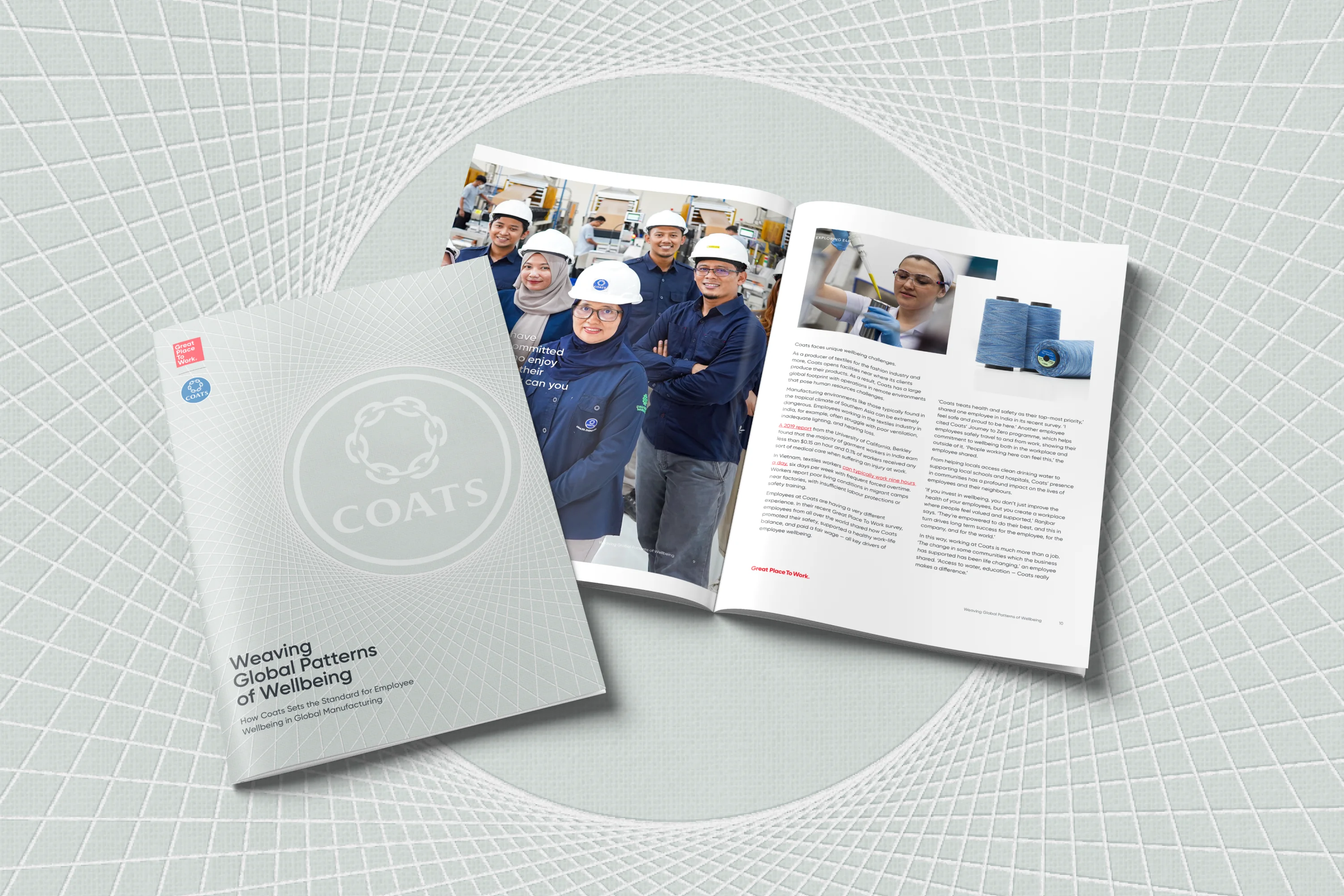Here’s what the data says you can do to build a better workplace and make your company competitive for the lists in 2025.
Making plans for the year ahead? Consider taking your cues from list winners who were recognized for their great workplace cultures last year.
Lists like the Fortune 100 Best Companies to Work For® use Great Place To Work® data to identify companies that deliver exceptional experiences for their employees. As a result, these companies enjoy higher levels of productivity and performance — and their strategies offer lessons for any leader.
Here are five of the things we learned about what created award-winning culture last year.
Use these nuggets to guide your efforts in 2025 and don’t miss our deadlines for the many lists honoring the Best Workplaces in the year ahead.
1. Embrace AI to offer new opportunities across your workforce
Great companies, like those on the 2024 100 Best Companies to Work For list, are already using AI to connect employees to opportunities for learning and development. Libraries of skills are mapped to workers’ interests and then AI suggests learning modules or new roles that employees can pursue to achieve their goals.
Companies like MetLife and DHL Express launched talent marketplace platforms, powerful tools that are reinventing career paths within their respective organizations. The result is higher levels of discretionary effort, with 86% of employees at the 100 Best saying people give extra effort at their company.
See how these investments are creating immense long-term value for the 100 Best, with these companies offering nearly four times the rate of return compared to the Russell 1000.
2. Focus less on the fine print of your remote work policy, but double down on flexibility
Great Place To Work research shows that working from an office or from your living room isn’t what determines your experience at a company. Instead, how you are treated by leaders and colleagues defines the culture.
When looking at the Fortune Best Workplaces in New York™, Chicago, Texas, and the Bay Area, the data showed that winning companies were committed to making sure employees had a voice on remote work and more. Eight in 10 employees (81%) at companies on these lists agreed that management involved people in decisions that affect them, compared to only half of employees (51%) at a typical workplace.
“When we debate remote and hybrid work and its impact on workplace culture, we often ask the wrong questions,” says Michael C. Bush, CEO of Great Place To Work. “The Best Workplaces are constantly reevaluating efforts to meet the specific needs of their people. That’s what builds the trust that drives business performance.”
See how companies like Wegmans Food Markets and Crowe built listening strategies that deliver.
3. When thinking about fairness in the workplace, look at more than pay
When employees describe a workplace as unfair or toxic, leaders might first look at compensation. Fair pay is a critical part of the employee experience, but it’s not the only factor.
Fairness shows up in other experiences as well, especially recognition and visibility across the organization. Employees are 60% more likely to give extra effort if they believe their employer offers everyone a chance for special recognition for their work. Reporting fair pay only made them 30% more likely to go above and beyond.
These odds held true across all industries in 2024, and at companies who made the Fortune Best Workplaces by Industry lists, 90% of employees reported they would go above and beyond to get the job done.
That is 53% more than what Great Place To Work found at typical workplaces.
Learn more about how the Best Workplaces in every industry offered award-winning experiences in 2024.
4. Caring and empathetic leadership unlocks employee productivity
Poet Maya Angelou once said, “People will forget what you said, people will forget what you did, but people will never forget how you made them feel.”
That’s true in every workplace, but at small and medium-sized businesses, the data is unequivocal. When employees feel that their leaders care about them, their productivity is unleashed. At the Fortune Best Small Workplaces™ and Fortune Best Medium Workplaces™, 95% of employees said managers showed a sincere interest in their lives.
Does that level of care connect to business outcomes? Oh, yes.
Employees who reported a caring culture in 2024 were 70% more likely to feel people give extra effort at their company.
Learn more about the experiences shaping the 2024 Best Small and Medium Workplaces and how companies like WestPac Wealth Partners and Once Upon a Farm are caring for employees.
5. Meaningful work is a key driver of important HR metrics, from productivity to retention
If you only have the bandwidth to focus on one aspect of the employee experience, you might want to take a close look at purpose.
Meaningful work is an important driver of retention and well-being. It’s a crucial differentiator across all of the Best Workplaces Lists. For the Fortune Best Workplaces for Parents™ in 2024, 87% of parents said their work was meaningful compared to just 59% at a typical workplace.
For parents, meaningful work was an important driver of productivity in 2024, with working parents being 26% more likely to give extra effort if they reported their work was more than “just a job.”
For women, a sense of purpose made them 2.5 times more likely to want to stay with their organization.
How do you foster a sense of purpose for your employees? We wrote a report about it.
Get recognized in 2025
There are still lots of opportunities to earn recognition and make one of the Best Workplaces Lists this year. Check out upcoming application deadlines and get started with Great Place To Work® Certification™ today.










